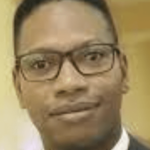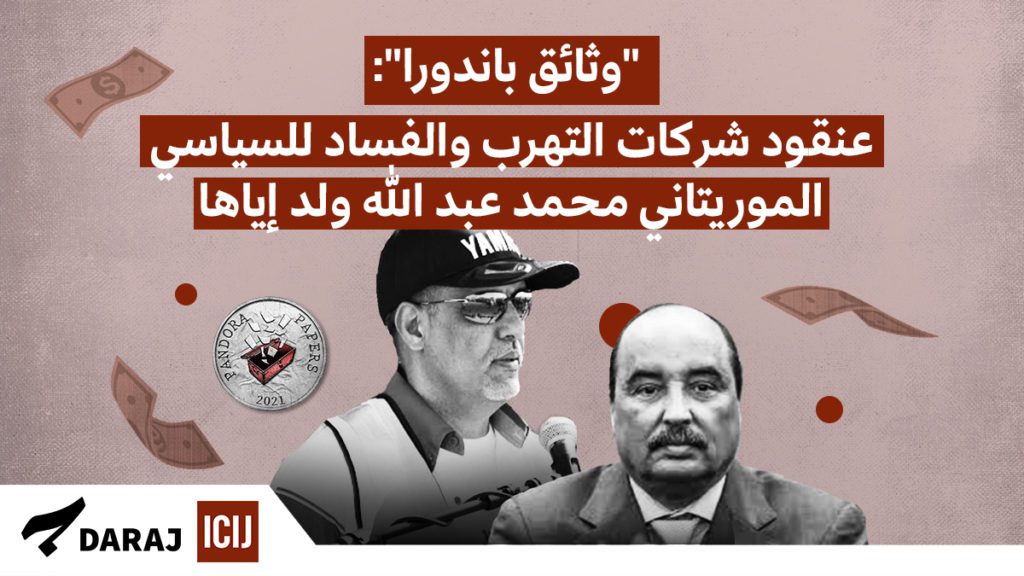In 1974 in Leningrad, the Russian city today known as Saint Petersburg, Mauritanian businessman Moulay Abbas Bougherbal and his wife Rita had a son, who they named Moulay Abdel Aziz.
Soon after, they moved from the city on the Neva River to the city on the Atlantic Ocean, Nouadhibou, the second most important city in Mauritania and the country’s economic capital, home to an enormous fleet catching some of the most expensive fish in the world.
In Nouadhibou, Moulay Abbas Bougherbal, the father, started a business in fish and fish derivatives. He would later be joined by his son Moulay Abdelaziz Bougherbal. The latter would also heavily invest in football.
In the leaked documents as part of the Pandora Papers, the son’s name first appeared alongside that of his father in the offshore company they established in 2005. But the son wanted to be independent and went on to develop a series of his own offshore firms.
In cooperation with the International Consortium of Investigative Journalists (ICIJ), as part of the Pandora Papers project, this investigation reveals the actions of Abbas and Abdelaziz Bougherbal, from the international arrest warrant issued against the father to transfer of millions of dollars to tax havens by the son.
The Father
Moulay Abbas Bougherbal had close ties with former President Mohamed Ould Abdel Aziz, who in March 2021 was found guilty of illicit enrichment and money laundering along with his son-in-law and several former ministers and businessmen.
Three years prior to that, when celebrating 58 years of Mauritanian independence, Abdel Aziz decorated Bougherbal with the National Order of Merit. A year later, the latter was also honored by the National Football Association for his support.
Abbas Bougherbal built a network of connections with influential people in both politics and football. He liked to present himself as a businessman improving the economy, fighting unemployment and helping people.
But behind the appealing public image Abbas Bougherbal created for Mauritanians in general and the residents of Nouadhibou in particular, which was keenly promoted by most Mauritanian media, lies a different image entirely. For one, like numerous other businessmen, Abbas Bougherbal played a major role in helping Ould Abdel Aziz in all elections he participated in by providing financial support.
Internationally Wanted
In 1998, Abbas Bougherbal established the company Société d’Elaboration des Produits Halieutiques in Nouadhibou, which mainly produces fish meal. His son Moulay Abdelaziz Boucherbal still holds the position of general manager.
In 2006, he obtained a $4 million loan from the OPEC Fund for Development to expand the SEPH processing plant, which he used to acquire several fishing vessels. The loan was part of a $9.5 million investment. The agreement with the OPEC fund was signed by Abdelaziz Bougharbal in his capacity as general manager.
The documents obtained by the ICIJ, which it shared with over 600 journalists in 117 countries, including Mauritania, show that 16 years ago, in August 2004, Abbas Boucherbal seized three Russian fishing vessels. The Captain Kononov, Yuozas Aleksonis and Trawlmeister Mogutov were operating in Mauritanian territorial waters. Documents confirm they used to be Russian owned.
In May 2005, Abbas Boucherbel sold the ships to the Oceanos Shipping Corporation in Belize in Central America, despite a ruling by the Mauritanian Supreme Court that banned any movement of the ships as long as final ownership was undetermined.
A law firm representing the Russian Federation also notified the company, warning that any illegal transactions regarding ships would be disputed in court.
Interestingly, during the investigation we discovered that the company that bought the ships and the law firm warning about the case are both partly owned by Abbas Bougherbal. In both firms he hold a 50% stake.
One year before the ships were sold, on October 29, 2004, Kadim Tsakalov, a Russian citizen in Las Palmas, signed for the incorporation of three offshore companies in Belize, which is a well-known tax haven: OCEANOS SHIPPING CORP, NEOMATIC S.L. and Kappa International LTD. The three companies later merged. With a capital of $50,000, Abbas Boucherbel and his son both have an equal stake.
Russia brought the issue of the ships to court in Belize, where the company is headquartered and was able to have an international arrest warrant issued against businessman Abbas Boucherbel by Interpol on charges of fraud.
Read Also:
The Son
Moulay Abdelaziz Bougherbal cooperated with his father in many of the latter’s projects. His name is found in both offshore companies and companies within Mauritania. But Abdelaziz Bougherbal also invested in fishing firms, and football, on his own.
He owns FC Nouadhibou, one of the biggest and most powerful clubs in the Mauritanian first league, which pays the country’s highest salaries. He also provided the club with the country’s only foreign technical staff.
His support enabled the club to participate in international competitions, and organize training camps in Turkey, Italy and other countries, which most clubs in Mauritania do not even dare dream of.
His support made FC Nouadhibou the most decorated club in the Mauritanian first league, in addition to winning the national cup several times.
But behind his spending on the club, he is active in a very different kind of business, which includes establishing offshore companies and sending money abroad to tax havens.
Publicly, Abdelaziz Bougherbal runs two companies: SEPH, which is owned by his father, and Omaurci SA, which also produces fish meal and is also headquartered in Nouadhibou. But Abdelaziz runs many more offshore companies in an undisclosed manner. This in order to obtain bank accounts in the British Virgin Islands, a well known tax haven.
The documents we reviewed reveal that, starting from 2017, Moulay Abdelaziz obtained bank accounts for several offshore” companies through VP Bank in Switzerland.
It started with Veiga Trading and Seafood Inc. in 2017. In the application, he submitted to establish the company, Abdelaziz confirmed he wanted to open a bank account in VP Bank in order to deposit an amount ranging between $350 and 400 million.
In 2018, Abdelaziz paid Trident Trust thousands of dollars to establish other offshore companies, including: Marca Services SA, Frenso Trading Inc., and Profi Fishmeal and Oil S.A.
These companies, according to the leaked documents, were solely created to obtain bank accounts, each of which had a specific amount. Marca Services and Trenso Trading had $200 million on each account.
Before the establishment of these companies, Abdel Aziz and his father owned an offshore company in Belize called FINEMORE INVESTMENTS TRADING CORPORATION, which was registered at 35 Barack Road Beliz City, an address that holds dozens of offshore companies from different countries, arguably for reasons of tax evasion.
Corruption in Mauritania
“We will ensure that we continue to fight corruption and develop legal mechanisms to eliminate bribery and practices that violate good governance.”
This is what former President Mohamed Ould Abdel Aziz pledged in his 2014 speech to inaugurate his second term as President of the Islamic Republic of Mauritania.
However, our research confirms his close association with the businessmen who appeared in the Pandora Papers. He even used his position to help some of them obtain large contracts and establish companies.
Corruption is the disease that makes Mauritania rank among the world’s poorest countries, despite its great natural wealth, which includes iron, gold and fish. Here, men can jump from unemployment to the top of the business world and state institutions to loot them little by little only to see gradually deteriorate and declare bankruptcy.
Others hide their wealth in tax havens, away from the eyes of the government and tax authorities. This all contributed to Mauritania ranking 137th in the 2019 Transparency International Corruption Perception Index just behind Lebanon and ahead of the Comoros.
In 2020 it improved slightly ranking 134th.
Tax evasion and hiding wealth through offshore companies is not something much talked about in Mauritania, but the Pandora Papers show it appears to be a well-established practice for many businessmen.
Lawyer Sayed Al-Mukhtar Sidi considered that resorting to registering in tax havens is not a crime in itself, but it may be accompanied by concealing the nationality of the company, which is considered a crime.
Sidi also stressed that remittances in hard currency, if they do not follow rules of banking integrity, are considered a criminal act.
Both Abbas and Abdelaziz Bougherbal ignored the questions we sent to them by e-mail. We asked them, among other things, about the father’s international investigation, the fraud he was accused of, and why they created companies in tax havens. Desperately trying to get an answer, we even wrote Abdelaziz by WhatsApp, but he kept ignoring our messages.
We returned to lawyer Sayed Al-Mukhtar Sidi regarding the companies, especially seeing the fact they are fictitious. According to him, they should be considered a fraud created for reasons of tax evasion.
As for Mahfouz Ould Ptah, Minister of Justice during the transitional government in 2005, when Abbas Boucherbel was accused of fraud and an international arrest warrant was issued against him, he denied knowledge of the case: “I am not aware of a case like this, which concerns the businessman you mentioned.”
Read Also:







